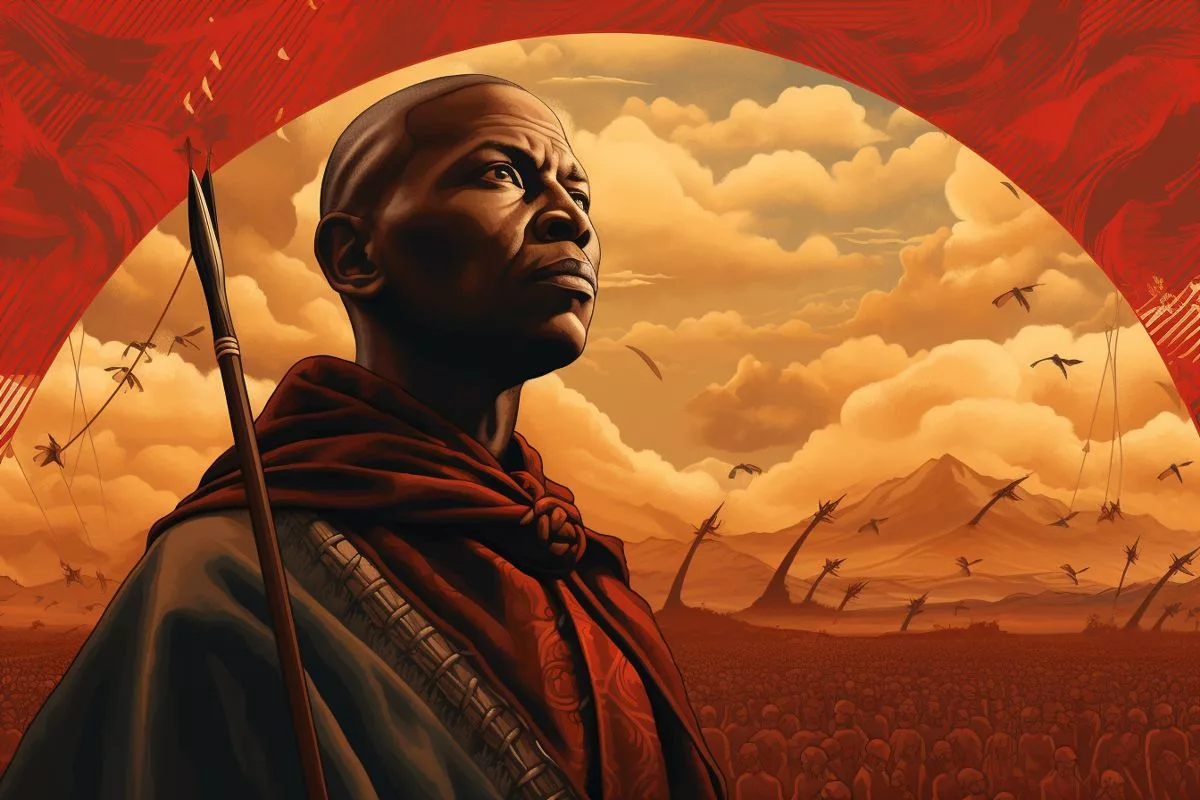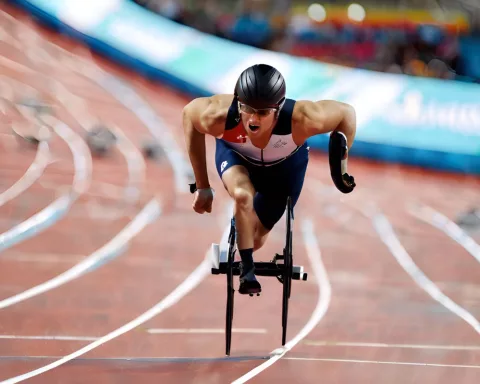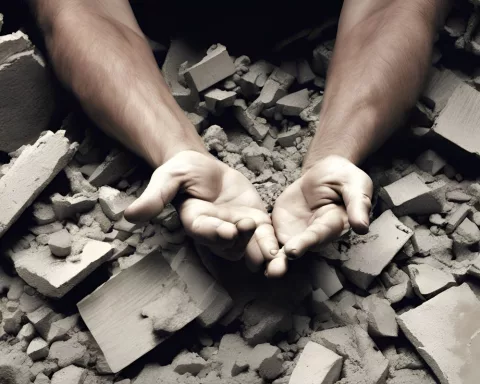The 16 Days of Activism for No Violence against Women and Children Campaign has been launched, aiming to eradicate gender-based violence and femicide worldwide. Deputy President Paul Mashatile is spearheading the initiative, along with esteemed individuals, civil society movements, and the private sector. The campaign runs from November 25 to December 10, with the goal of cultivating a unified front to accelerate actions and leave no one behind in the fight against gender-based violence and femicide.
16 Days of Activism for No Violence against Women and Children Campaign launches with the theme “Accelerating Actions to end Gender-Based Violence and Femicide, leaving no one behind”, spearheaded by Deputy President Paul Mashatile, along with esteemed individuals, civil society movements, and the private sector. The campaign runs from November 25 to December 10, culminating on International Human Rights Day. Its goal is to cultivate a unified front to eradicate gender-based violence and femicide worldwide.
The Dawn of a New Era
On the crisp morning of November 25, 2023, the eyes of the world will turn towards Nsikazi Stadium. Nestled in the charming Khumbula Village, Gutshwa, within the bustling city of Mbombela, Mpumalanga Province, this location is poised to host a significant event. Stepping into the spotlight as the catalyst of the event is Deputy President Paul Mashatile, championing the launch of the 16 Days of Activism for No Violence against Women and Children Campaign.
As the sun rises, the urgency of the mission is palpable. This year’s theme, “Accelerating Actions to end Gender-Based Violence and Femicide, leaving no one behind”, echoes globally. It is not just a rallying cry for South Africa, but a worldwide plea for heightened attention towards the devastating impact of gender-based violence and femicide (GBVF) on women, children, and the broader societal fabric.
The campaign, stretching from November 25 to December 10, dovetails with the recognition of International Human Rights Day. This globally significant day marks the adoption of the Universal Declaration of Human Rights by the UN Assembly. The global resonance of the GBVF issue, far beyond South Africa’s confines, evokes the fitting culmination of the campaign on this international day of human rights.
An Ensemble of Stakeholders
Deputy President Mashatile won’t be standing alone on this monumental occasion. He will be joined by a group of esteemed individuals, including the Minister in the Presidency for Women, Youth and Persons with Disabilities, Dr Nkosazana Dlamini-Zuma, and the Minister of Social Development, Ms Lindiwe Zulu. Premier of the Mpumalanga Province, Ms Refilwe Mtsweni-Tsipane, along with Mpumalanga Provincial Executive Council members, Mayors, and senior government officials, will also participate.
The campaign’s itinerary includes visits to local infrastructural landmarks, symbolizing a holistic approach to countering gender-based violence. The delegation, led by Mashatile, will tour the Tekwane Bridge site and the Karino Water Treatment Plant in the Ehlanzeni District before convening at the main event at Nsikazi Stadium.
The government’s determination to eradicate GBVF is evident in its strategic alliances with civil-society movements and the private sector. These partnerships are crucial facets of the campaign strategy, representing a united front in addressing this urgent concern. The campaign’s goal transcends raising awareness about GBVF; it aspires to cultivate a cohesive environment where the government, civil society, and private sectors combine forces to battle this societal scourge.
Media Amplification and Enduring Impact
The role of the media is critical in broadcasting the campaign’s message. Media entities are expressly invited to cover the day’s activities, ensuring the campaign’s goals and actions permeate a broader audience.
The 16 Days of Activism for No Violence against Women and Children campaign symbolizes South Africa’s dedication to protecting human rights and advancing gender equality. It embodies the persistent efforts of the government, civil-society movements, and the private sector working in harmony to envision a society devoid of gender-based violence and femicide.
Albeit the campaign lasts just 16 days, its echo, the consciousness it ignites, and the initiatives it triggers will reverberate throughout the year. As the world watches this campaign unfold, it serves as a stark reminder of the necessity to keep this dialogue alive, to persist in challenging norms, and to relentlessly strive towards a world where no one is marginalized.
The curtain is about to rise, the actors are poised, and the plotline is captivating. On November 25, the Nsikazi Stadium will be far more than a geographical landmark. It will pulse with the rhythm of a revolution, symbolize a societal shift and personify a beacon of hope for a future where gender-based violence and femicide are relegated to history, not a persistent plight.
1. What is the 16 Days of Activism for No Violence against Women and Children Campaign?
The campaign aims to eradicate gender-based violence and femicide worldwide through a unified front of individuals, civil society movements, and the private sector. It runs from November 25 to December 10.
2. Who is spearheading the campaign?
Deputy President Paul Mashatile is leading the initiative and will be joined by esteemed individuals, civil society movements, and the private sector.
3. What is the theme of the campaign?
The theme of the campaign is “Accelerating Actions to end Gender-Based Violence and Femicide, leaving no one behind.”
4. What landmarks will the campaign visit?
The delegation, led by Deputy President Mashatile, will visit local infrastructural landmarks, including the Tekwane Bridge site and the Karino Water Treatment Plant in the Ehlanzeni District.
5. What is the role of the media in the campaign?
Media entities are invited to cover the day’s activities, ensuring the campaign’s message reaches a broader audience.
6. What is the lasting impact of the campaign?
The campaign’s echo, the consciousness it ignites, and the initiatives it triggers will reverberate throughout the year. It serves as a stark reminder of the necessity to keep this dialogue alive and persist in challenging norms towards a future where gender-based violence and femicide are relegated to history.








